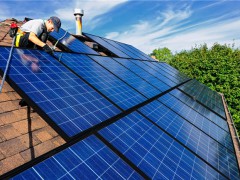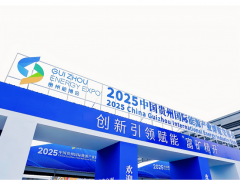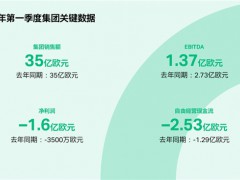持續(xù)的歐洲能源危機(jī)增加了全球天然氣價(jià)格上漲的壓力
美國(guó)的《通貨膨脹削減法案》旨在減輕天然氣需求的壓力,但一些人擔(dān)心這種緩解可能不會(huì)很快到來(lái)
隨著對(duì)天然氣的競(jìng)爭(zhēng)達(dá)到白熱化,許多人猜測(cè)全球天然氣價(jià)格將繼續(xù)上漲
據(jù)美國(guó)油價(jià)網(wǎng)8月29日?qǐng)?bào)道,對(duì)于全球天然氣市場(chǎng)的現(xiàn)狀,專家和普通消費(fèi)者仍存在分歧。爭(zhēng)論的主要焦點(diǎn)是美國(guó)的天然氣價(jià)格是會(huì)大幅下跌還是會(huì)進(jìn)一步上漲。隨著通貨膨脹率在過(guò)去一年創(chuàng)下歷史新高,沒(méi)有人能責(zé)怪消費(fèi)者的謹(jǐn)慎。大多數(shù)專家一致認(rèn)為,天然氣價(jià)格和需求將保持不變。持續(xù)的歐洲能源危機(jī)對(duì)這一點(diǎn)影響很大。歐盟國(guó)家繼續(xù)尋找燃料的替代品。然而,歐洲的能源問(wèn)題可能會(huì)波及整個(gè)國(guó)際能源市場(chǎng)。事實(shí)上,這種情況可能已經(jīng)發(fā)生。
歐洲液化天然氣危機(jī)波及美國(guó)
由于歐洲天然氣價(jià)格居高不下,天然氣儲(chǔ)備不斷減少,歐盟一直在世界范圍內(nèi)尋找能源的替代品。正因?yàn)槿绱耍蛱烊粴飧?jìng)爭(zhēng)最近經(jīng)歷了急劇和持續(xù)的上升。
與此同時(shí),事實(shí)證明,冬季將是普通消費(fèi)者錢包最緊張的月份。畢竟,數(shù)以百萬(wàn)計(jì)的美國(guó)和歐洲家庭依靠天然氣取暖。隨著冬天的迅速臨近,形勢(shì)看起來(lái)很嚴(yán)峻。雖然《降低通脹法案》等法案可能會(huì)減輕美國(guó)家庭對(duì)天然氣需求的一些壓力,但這些舉措的實(shí)施和建設(shè)需要時(shí)間。真正的問(wèn)題仍然存在,他們會(huì)在3~4個(gè)月內(nèi)準(zhǔn)備好嗎?
從積極的方面來(lái)看,歐洲瘋狂尋找解決方案的努力可能在不久的將來(lái)得到回報(bào)。挪威、美國(guó)和英國(guó)等國(guó)已經(jīng)開(kāi)始幫助德國(guó)和其他中歐國(guó)家獲得替代天然氣進(jìn)口。然而,這些來(lái)源是否足以讓歐盟度過(guò)冬季,仍有待商榷。
亞洲密切關(guān)注天然氣儲(chǔ)備
隨著對(duì)天然氣的競(jìng)爭(zhēng)達(dá)到白熱化,許多人猜測(cè)全球天然氣價(jià)格將繼續(xù)上漲。不僅美國(guó)的天然氣供應(yīng)被運(yùn)往歐洲以應(yīng)對(duì)能源危機(jī),而且創(chuàng)紀(jì)錄的熱浪也意味著更多的電力消耗,因?yàn)槊绹?guó)和歐洲的家庭在炎熱的夏天越來(lái)越依賴空調(diào)。
過(guò)去幾周,就連亞洲也開(kāi)始感受到西方能源危機(jī)帶來(lái)的壓力。
像韓國(guó)和日本這樣天然氣儲(chǔ)量極少的國(guó)家,嚴(yán)重依賴天然氣進(jìn)口。這使它們與歐洲形成了直接競(jìng)爭(zhēng),后者著眼于通過(guò)海上運(yùn)輸液化天然氣。盡管確保供應(yīng)的戰(zhàn)斗才剛剛開(kāi)始打響,但許多專家預(yù)計(jì),未來(lái)幾年這種戰(zhàn)斗將會(huì)更加激烈。
李峻 編譯自 石油價(jià)格網(wǎng)
原文如下:
The Global Gas Crisis Is Spilling Into The United States
· The ongoing European energy crisis has added upward price pressure across the globe.
· America’s Inflation Reduction Act aims to take some pressure off of natural gas demand, but some worry relief may not come soon enough.
· With competition for natural gas hitting a fever pitch, many speculate gas prices will continue rising worldwide.Join Our Community
Both experts and everyday consumers remain at odds about the current state of the global natural gas market. The main point of contention is whether U.S. prices will drop significantly or rise further. With inflation hitting record highs this past year, nobody can blame consumers for being wary. Most experts agree that gas prices and demand will keep up their pace. The ongoing European energy crisis weighed into this heavily. EU countries continue to search for alternatives to fuel. However, Europe’s energy problems will likely ripple into the entirety of the international energy market. In fact, it might be happening already.
LNG Crisis in Europe Spilling into the U.S.
The Nord Stream 1 pipeline running at low capacities could hit the U.S. harder than expected. With sky-high gas prices across Europe and dwindling reserves, the EU has been scouring the world for alternatives to energy. Because of this, global gas competition recently experienced a sharp – and ongoing – rise.
Along with this, the winter months will prove the most strenuous on the average consumer’s wallet. After all, millions of American and European homes rely on natural gas for heat. With winter quickly approaching, the situation looks grim. While bills like the Inflation Reduction Act will likely take some of the pressure off of natural gas demand in the US, those initiatives will take time to implement and build. The real question remains; will they be ready in 3-4 months' time?
On the positive side, Europe’s frantic search for solutions could pay off in the near future. Already, countries like Norway, the US, and the UK have stepped up to aid Germany and other central EU nations in getting alternative gas imports. However, whether or not these sources are enough to tide the EU over through winter remains up for debate.
Asia Watching Natural Gas Reserves Closely
With competition for natural gas hitting a fever pitch, many speculate gas prices will continue rising worldwide. Not only are natural gas supplies in the US being shipped to Europe to aid with the energy crisis, but record-setting heat waves mean more power consumption as American, and European homes are relying more and more on air conditioning.
Countries like South Korea and Japan, which have minimal natural gas reserves of their own, are heavily reliant on natural gas imports. This puts them in direct competition with European, which has its eye on LNG supplies shipped by sea. Though the battle to secure supplies just started, many experts expect it to intensify in the coming years.
免責(zé)聲明:本網(wǎng)轉(zhuǎn)載自其它媒體的文章及圖片,目的在于弘揚(yáng)石化精神,傳遞更多石化信息,宣傳國(guó)家石化產(chǎn)業(yè)政策,展示國(guó)家石化產(chǎn)業(yè)形象,參與國(guó)際石化產(chǎn)業(yè)輿論競(jìng)爭(zhēng),提高國(guó)際石化產(chǎn)業(yè)話語(yǔ)權(quán),并不代表本網(wǎng)贊同其觀點(diǎn)和對(duì)其真實(shí)性負(fù)責(zé),在此我們謹(jǐn)向原作者和原媒體致以崇高敬意。如果您認(rèn)為本站文章及圖片侵犯了您的版權(quán),請(qǐng)與我們聯(lián)系,我們將第一時(shí)間刪除。







